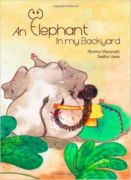
Maya’s family refuses to believe that she has an elephant in her backyard. But the elephant is not hers and he needs to return home!
Materials from India

Maya’s family refuses to believe that she has an elephant in her backyard. But the elephant is not hers and he needs to return home!
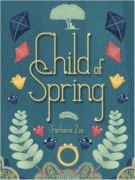
Basanta longs for the beautiful ring worn by her young mistress, but when it comes into her possession, she realizes that it’s not the wonderful possession she expected. Increasingly aware of the struggles of her less privileged friends, Lali and Bala, she finds a way to improve their lives and entertain their community and the beautiful ring takes on new meaning.
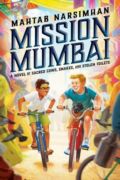
Dylan, an aspiring photographer, is spending a month in Mumbai with his friend Rohit Lal and his family, but knowing nothing of Indian culture, he cannot seem to do anything right (do not hit cows!)–and the situation is made worse by the tensions within the Lal family over whether Rohit should be raised in India, which Mr. Lal’s wealthy sister is pushing for.

Noor has lived all of her fourteen years in the fifteen lanes of Mumbai’s red light district. Born into a brothel, she is destined for the same fate as her mother: a desperate life trapped in the city’s sex trade. She must act soon to have any chance of escaping this grim future.
Across the sprawling city, fifteen-year-old Grace enjoys a life of privilege. Her father, the CEO of one of India’s largest international banks, has brought his family to Mumbai where they live in unparalleled luxury. But Grace’s seemingly perfect life is shattered when she becomes a victim of a cruel online attack.
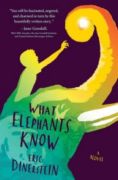
When the king’s government threatens to close the stable, Nandu, now twelve, searches for a way to save his family and community. A risky plan could be the answer. But to succeed, they’ll need a great tusker. The future is in Nandu’s hands as he sets out to find a bull elephant and bring him back to the Borderlands.
What Elephants Know is a WOW Recommends: Book of the Month for July 2016.
In this breathtaking companion to the award-winning Grandfather Gandhi, Arun Gandhi, with Bethany Hegedus, tells a poignant, personal story of the damage of wastefulness, gorgeuously illustrated by Evan Turk. At Grandfather Gandhi’s service village, each day is filled, from sunrise to sunset, with work that is done for the good of all. The villagers vow to live simply and non-violently. Arun Gandhi tries very hard to follow these vows, but he struggles with one of the most important rules: not to waste. How can throwing away a worn-down pencil hurt anyone? How can wastefulness lead to violence? With the help of his grandfather, Arun learns how every wasteful act, no matter how small, affects others. And in time he comes to understand the truth of his grandfather’s words: “Be the change you wish to see in the world.”

In this timeless Aesop’s fable, a fox and a crow vie for a piece of bread. The crow has it, but can the fox get it? This breathtakingly beautiful picture book adapted by Manasi Subramaniam and by Culpeo S. Fox is an exploration of this tale. Each page stands alone like a brilliant painting; when the pages come together, they tell us the story like never before.

With a loving mama, a trumpeting herd, curious cousins, and even some dancing peacocks heralding this little one’s arrival, it is apparent that the joy and wonder a new baby brings is shared by all!

First published over a century ago, these three unabridged stories from THE JUNGLE BOOK about the man-cub, Mowgli, have delighted adults and children ever since. The stories tell of Mowgli’s upbringing among the wolves; his lessons in the Law of the Jungle from Baloo the bear, Bagheera the black panther, and Kaa the python; his kidnapping by the Monkey People; and his clash with the evil tiger, Shere Khan.
The Jungle Book is critiqued as presenting a colonial British view of India.
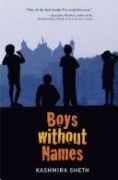
For eleven-year-old Gopal and his family, life in their rural Indian village is over: We stay, we starve, his baba has warned. With the darkness of night as cover, they flee to the big city of Mumbai in hopes of finding work and a brighter future. Gopal is eager to help support his struggling family until school starts, so when a stranger approaches him with the promise of a factory job, he jumps at the offer. But Gopal has been deceived. There is no factory, just a small, stuffy sweatshop where he and five other boys are forced to make beaded frames for no money and little food. The boys are forbidden to talk or even to call one another by their real names. In this atmosphere of distrust and isolation, locked in a rundown building in an unknown part of the city, Gopal despairs of ever seeing his family again. But late one night, when Gopal decides to share kahanis, or stories, he realizes that storytelling might be the boys’ key to holding on to their sense of self and their hope for any kind of future. If he can make them feel more like brothers than enemies, their lives will be more bearable in the shop—and they might even find a way to escape.